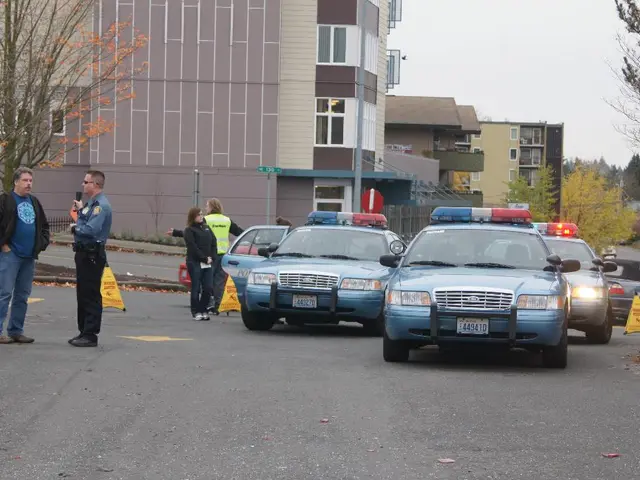Israel Greenlights Recruitment of 60,000 Reservists for Gaza Operations
In the ongoing conflict between Israel and Hamas in Gaza, the situation remains intense as of late August 2025. Israel's Defense Minister has approved the mobilization of 60,000 reservists for the occupation of Gaza, though specific numbers have not been detailed.
The offensive, which began on August 20, is part of the broader Gaza war that has been ongoing since 2023. Israeli officials have expressed a determination to continue fighting until Hamas is defeated and hostages are released. However, there is significant public pressure both for continuing military action and for negotiating hostages’ release, with massive protests in Tel Aviv demanding a deal with Hamas to free hostages.
Ceasefire proposals put forward by Egypt and Qatar have so far failed to halt hostilities. Hamas initially appeared to accept such a proposal, but subsequently denounced Israel’s offensive as disregarding these mediation efforts and vowed not to disarm without establishing an independent Palestinian state. The Israeli security cabinet has not publicly discussed the ceasefire acceptance, and Prime Minister Netanyahu has emphasized continuing the fight until Hamas is destroyed.
The humanitarian situation in Gaza is dire. The UN reports that Gaza is suffering from a famine classified as phase 5 (famine conditions), with over half a million people facing starvation and destitution, numbers expected to rise sharply by the end of September. Acute malnutrition is widespread, especially among children under five and pregnant or breastfeeding women. This famine is described as a “created catastrophe” stemming directly from the conflict, not from natural causes.
Meanwhile, Israel has also approved a controversial settlement project in the occupied West Bank, potentially making a contiguous territory for a future Palestinian state more difficult. The construction of around 3,400 housing units in the E1 area, if implemented, would effectively divide the West Bank into a northern and a southern part. This move has been criticized by international leaders, including Germany's Federal Foreign Minister Johann Wadephul, who stated it would be contrary to international law and make a two-state solution impossible.
The conflict has heightened regional tensions, involving exchanges of fire in Lebanon, Syria, and Yemen affecting the broader Middle East stability. Several countries, including France, Canada, and Australia, want to recognize a Palestinian state next month. The German federal government stands on the position that recognition should be the culmination of a negotiating process between Israel and the Palestinians.
As the conflict continues, it is crucial to remember the impact on the civilian population. The civilian population in Gaza, estimated at around one million people, is urged to flee before the offensive. The civilians are to move to tent quarters further south in the coastal strip, where their supply with medical aid and food is to be ensured.
In summary, Israel is actively engaged in an offensive in Gaza with substantial domestic debate over military strategy and hostage safety. Ceasefire efforts have so far failed to halt hostilities. Meanwhile, Gaza’s civilian population is facing extreme humanitarian distress, including famine and widespread malnutrition, exacerbated by the conflict’s impact and blockade measures. The international community continues to call for a peaceful resolution to the conflict and a two-state solution as the only viable route to lasting peace.
Read also:
- United States tariffs pose a threat to India, necessitating the recruitment of adept negotiators or strategists, similar to those who had influenced Trump's decisions.
- Weekly happenings in the German Federal Parliament (Bundestag)
- Southwest region's most popular posts, accompanied by an inquiry:
- Discussion between Putin and Trump in Alaska could potentially overshadow Ukraine's concerns








